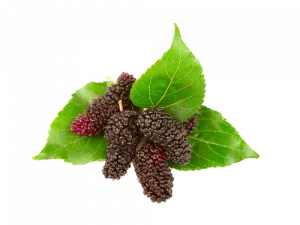Dark Chocolate Health Benefits
I had earlier written about the health benefits of plant-based foods such as turmeric, moringa, hibiscus and mulberry. This post is about the health benefits dark chocolate offers. It’s the newest in our series of posts about health foods, as we bring you the latest data on health food trends and healthy living.
Table of Contents
Introduction
Chocolate is universally loved as a sweet treat with no age restrictions. Dark chocolate, in particular, is a delicious treat with many health benefits linked to its high cocoa content (70% or more).
Dark chocolate’s origins are interesting and help explain its growing popularity as a health product. In this latest post, I share its origin story. I’ll explore how dark chocolate is consumed and the health benefits that drive its popularity.
Origins of Dark Chocolate
The origins of chocolate can be traced back to ancient Meso-American civilizations, particularly the Mayans and Aztecs. The cacao tree (Theobroma cacao) is native to the tropical regions of Central and South America. The word “cacao” is derived from the Mayan word “kakaw.”
According to some sources, dark chocolate dates back to at least 2000 BC. It was used as a bitter drink by the Maya and the Aztec for religious and medicinal purposes . Dark chocolate was the only variety available until the 16th century, when the Spanish introduced new variations with sugar and milk.
The Mayans were among the first to cultivate cacao trees and consume chocolate. They believed cacao had divine properties and used it in religious ceremonies. They prepared a bitter beverage called “xocoatl” or “chocolatl,” made from ground cacao beans mixed with water and spices. It was often consumed by the elite and used as a form of currency.
The Aztecs, who later conquered the Mayans, also highly valued cacao. They continued the tradition of consuming cacao as a drink, and added their own twist by using chili peppers and other ingredients to enhance the flavor. They also called the beverage “xocoatl”.
When the Spanish conquistadors arrived in the Americas in the 16th century, they encountered cacao and brought it back to Europe. Initially, chocolate was primarily a beverage favored by the European elite. Over time, it gained popularity and underwent various transformations in terms of preparation and flavor. Sugar, spices, and milk were added to make it more palatable.
The Development of Solid Dark Chocolate
In the 18th century, advancements in technology led to the development of solid chocolate. The invention of the cocoa press in 1828 by Coenraad Johannes van Houten enabled the extraction of cocoa butter from roasted cacao beans, resulting in cocoa powder. This innovation paved the way for the production of solid chocolate bars and other chocolate confections.
Today, chocolate is enjoyed worldwide in various forms, from bars and truffles to beverages and desserts. Different regions have their own chocolate-making traditions and preferences, with major producers located in countries like Belgium, Switzerland, and the United States. However, the rich history and cultural significance of chocolate can be traced back to the ancient civilizations of Mesoamerica.

Converting Cocoa to Chocolate
To convert cocoa to chocolate, the seeds are fermented, dried, and roasted. Then, they are cracked and separated from their shells, producing cocoa nibs. The nibs are ground into a paste called cocoa liquor, which contains cocoa solids and cocoa butter. The liquor is then pressed to extract some of the cocoa butter, leaving behind cocoa cake.
The cake is pulverized into cocoa powder, which can be used for baking or drinking. To make chocolate, cocoa liquor is mixed with sugar and more cocoa butter, and sometimes other ingredients like milk or vanilla. The mixture is then refined, conched, tempered, and molded into bars or other shapes.

Dark Chocolate Health Benefits
Here are some of the health benefits of dark chocolate. These benefits also makes chocolate a great dietary addition for athletes.
- Rich in Antioxidants: The antioxidants and flavanols in dark chocolate help protect the body against damage from free radicals. Free radicals are unstable molecules that can contribute to aging and disease. Antioxidants support overall health and have been linked to a reduced risk of chronic diseases such as heart disease and certain types of cancer.
- Cardiovascular Health: Studies suggest moderate consumption of dark chocolate may have a positive impact on heart health. The flavonoids in dark chocolate have been shown to improve blood flow, lower blood pressure, and reduce the risk of blood clot formation. These heart-healthy effects may contribute to a lower risk of heart disease and stroke.
- Mood Enhancement: Dark chocolate contains compounds that stimulate the production of endorphins, which are natural mood-lifting chemicals in the brain. It also contains small amounts of caffeine and theobromine, which have mild stimulant effects, boosting energy and enhancing mental alertness.
- Brain Health: Studies show the flavanols in dark chocolate have been linked to improved cognitive function and a reduced risk of neurodegenerative conditions. They may enhance blood flow to the brain, promote the formation of new blood vessels, and improve overall brain health.
- Lowered Risk of Diabetes: Some studies suggest regularly eating dark chocolate improves insulin sensitivity, reducing insulin resistance and the risk of developing type-2 diabetes. However, it’s important to note dark chocolate still contains calories and sugar, so moderation is key.
- Skin Health: The antioxidants in dark chocolate can help protect the skin against oxidative stress and damage from the sun’s harmful UV rays. They may also improve skin hydration, increase blood flow to the skin, and contribute to a more youthful and radiant appearance.
It’s worth mentioning that, although dark chocolate provides potential health benefits, particularly when compared with white chocolate and milk chocolate, it should be consumed in moderation due to its calorie and fat content. Excessive consumption can lead to weight gain and other adverse effects. Try to only consume a small amount of dark chocolate(about 1 ounce or 30 grams) a few times per week as part of a balanced diet to enjoy the potential health benefits.
Dark Chocolate and Health Benefits in Anti-Aging
The benefits of dark chocolate has been shown above. But what stands out when exploring the health benefits dark chocolate can bring to your life, is its effect on aging.
Chocolate has high amount of polyphenols that enables the antioxidants to get rid of free-radicals. Some of the causes for free-radicals in the body are smoking, UV rays, and pollution. While the body puts up a fight against these on a constant bases, it undergoes stress called Oxidative Stress, where it alters the cells and protein synthesis in the body.
As we consume foods high in anti-oxidants, they fight the free radicals in the body, reducing their impact to cells and protein synthesis. This in turn enables the body to start repairing the body with not as much stress on its regulating mechanisms.
These base effects in conjunction help the body mitigate an adverse aging process. One should note chocolate is not the only solution for this issue. A well balanced diet with organic foods is crucial.
How Often Should You Consume Dark Chocolate?
By now it is evident that chocolate is good for the mind and body. But consuming too much chocolate can have adverse effects.
1 ounce of dark chocolate with 70-85% of cocoa solids has about 170 calories and 12 grams of fat. This is not bad by itself, but who consumes 1 ounce of chocolate per sitting? The optimal quantity of chocolate is at most 2 ounces per day to get most of its benefits.
Beyond that we risk ingesting more calories and the associated saturated fat. Dark chocolate consumed in higher than healthy amounts can raise your levels of bad cholesterol.
Moderation and a balanced diet is essential to deriving lasting benefits from dark chocolate.
Final Thoughts on the Healthy Impact of Dark Chocolate
Dark chocolate has had an impressive journey and transformation over many centuries.
From its origins in the tropical forests of the Aztec and Mayan civilizations to being one of the favorite foods globally today. Dark chocolate’s health benefits have been studied, researched and widely recognized.
Explore your favorite styles of dark chocolate and ensure your diet includes only healthy amounts.
I hope you found this guide to the health benefits of dark chocolate useful! We have a number of other food and health posts for you. Stay tuned for more!




